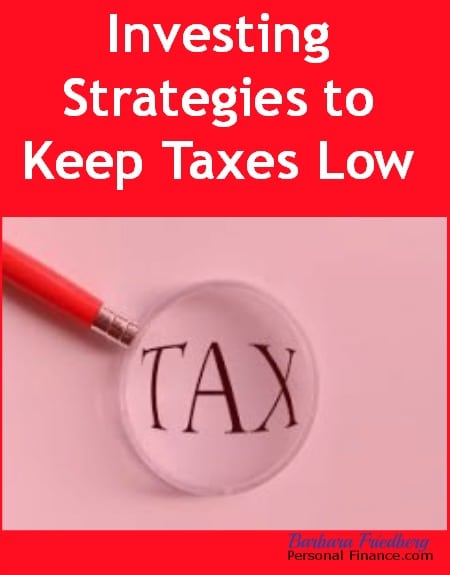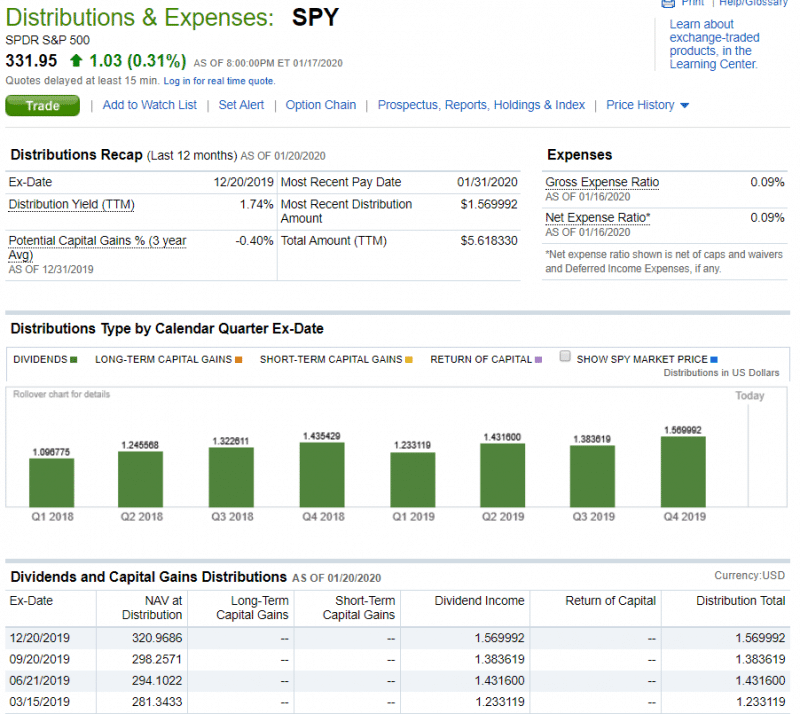What are investing and tax strategies for high income earners?
Help, what are the best ways to reduce taxes on investments?
Jon Dulin of Money Smart Guides asks; “What investment strategy should a couple use if they’re in a high tax bracket and want to minimize taxes on their investments?”
First off, if you’re interested in this question, congratulations. This is a nice investing problem to have.
There are actually three parts to the Tax saving tips for high income earners issue.
First, there’s the question of finding tax-advantaged investments for high income earners.
Second, “What are the best tax advantaged accounts?”
Third, “How to reduce taxble income for high earners?”
1. Best Tax-Advantaged Investments for High Income Earners
Recently, a few “new” entrepreneurs have been speaking to me about how to invest their recent and unexpected income. For those of you who are new to the “high tax bracket” life or those more mature folks who’ve been in a high tax bracket for awhile, there are certain strategies to help you keep taxes at bay.
Growing up, my dad was dirt poor and incredibly ambitious. In his quest to better himself he looked for any angle to maximize the money he made-and that included keeping taxes to a minimum. I was raised on “ways to keep taxes as low as legally possible”.
This section talks about what the best tax-free investments and other types of investments to keep your taxes low.
Consider these types of investments for low tax investing:
- Municipal bonds from your state of residence.
- Tax efficient managed mutual funds.
- Traditional index funds with low turnover.
Municipal Bonds
A bond is a loan to another entity in exchange for interest payments. Bonds are issued by corporations as well as governments. Most bond interest (or coupon payments) are taxable. The government issues bonds which are free of state taxes, but taxable at the federal level such as I Bonds.
Municipal bonds can be local, state and federal tax exempt.
According to Investopedia, Municipal Bonds are; “A debt security issued by a state, municipality or county to finance its capital expenditures. Municipal bonds are exempt from federal taxes and from most state and local taxes, especially if you live in the state in which the bond is issued. Also known as a “muni.”
The good news about muni’s is their current interest rates are quite competitive with those taxable bonds. To compare the yield of a muni versus a taxable bond, check out the tax equivalent yield. This will show you the comparison between the real yield of a taxable vs. municipal bond.
I’ve recently invested in Vanguard Tax Exempt Municipal Bond ETF (VTEB). The fund has a low expense ratio of 0.08% and the current 1.61% tax-free yield is equivalent to a 2.236% taxable yield for someone in the 24.5 tax bracket. This fund doesn’t shelter income from state taxes.*
Tax Efficient Investing with Mutual Funds
Tax efficient investing mutual funds means that the fund manager implements strategies to reduce capital gains and dividends. This typically includes infrequent trading of securities.
Taxes are due on capital gains and dividends. As long as an investment such as a stock or bond isn’t sold, there are no capital gains taxes to pay. It follows that if the fund manager is mindful of the tax implications of the mutual fund, he or she will keep selling to a minimum. This will keep your tax obligation low.
“Tax-managed funds also seek to track a particular index through a buy-and-hold strategy. They go a step further, though, by following specialized investment plans designed to minimize buying and selling of shares that could generate taxable gains. They also impose policies designed to discourage investors from frequently moving into and out of the funds.” According to the Vanguard Funds Tax Center.
Vanguard Tax-Managed Balanced Fund Admiral Shares (VTMFX)* is a blended mutual fund with 50% mid and large capitalization U.S. and stocks, with the balance in federally tax-exempt municipal bonds. This sample tax managed mutual fund might be suitable for someone who wants to combine an index-oriented approach, growth of principal and a bond portfolio in one fund.
Index Funds-With Low Turnover
By their nature, index funds have low turnover and rock bottom expenses. Due to these characteristics, they are among the best types of tax smart investments.
In contrast with active investment fund managers, tax advantaged investments like index funds simply mirror the securities owned by a specific unmanaged index, like the S&P 500. There’s no reason to sell a security within an index etf, which might cause taxable capital gains, unless the index drops that company.
“Are Stock Markets Efficient or Not?” explains the theory behind index fund investing. In short, mutual funds which track popular unmanaged indexes such as the S&P 500 tend to beat comparable actively managed mutual funds and have lower turnover with rock bottom annual expense ratios.
High income earners need to keep turnover and fees low. When researching index funds for purchase you can check their tax efficiency. Fidelity shows the potential capital gains of the SPDR S&P 500 ETF which replicates the popular S&P 500 index :
Source; https://screener.fidelity.com/ftgw/etf/goto/snapshot/distributions.jhtml?symbols=SPY
Invest Capital Gains in Economic Opportunity Zones
Opportunity zone investing is a new opportunity to defer and possibly eliminate large capital gains. By investing in designated economically distressed areas, and holding the investment for more than seven years, you can essentially eliminate capital gains.
There are specific funds set up for opportunity zone investing. But this is not for amateurs and requires thorough due diligence before committing to an opportunity zone investment.
Read: 6 Tax Tips for High Income Investors
Next, in what types of accounts should you invest to minimize taxes?
2. Best Tax-Advantaged Accounts – Where to Invest to Keep Taxes Low
Retirement accounts, such as your IRA, Roth IRA, workplace 401(k) or 403(b) have built in tax benefits. In most cases, investing in these accounts decreases your taxable income and allows your money to grow tax free. Because of these outstanding tax benefits, it’s smart tax planning to put assets with the highest tax consequences in retirement accounts.
Which Assets to Place in Tax Advantaged Accounts?
Corporate bonds and bond funds belong in a tax advantaged retirement account. These bonds pay regular taxable dividends.
Stock funds with high turnover should also be held in tax advantaged accounts.
Never put muni bonds in tax advantaged accounts, as you’re losing their tax benefit.
Best Investments for Taxable Investment Accounts
Place low turnover tax efficient managed mutual funds and stock index mutual funds in your discount brokerage account at Fidelity, Schwab, TD Ameritrade etc. Both of these types of funds avoid high turnover and consequently avoid high tax bills.
3. How to Reduce Taxable Income for High Earners
Clearly, the less income that is taxed, the lower your tax bill.
High earners should invest the maximum in a 401(k) or 403(b).
Next, if eligible, high income earners should fully fund a Health Savings Account each year, to further shelter income. By investing the money within the HSA, you can continue to build wealth and shelter your assets from taxes. And if the money witin the account is later used for medical expenses, there willbe no tax due upon withdrawal.
You can also donate appreciated stock to charity, thereby eliminating paying tax on your gains. If you itemize, you also might be able to deduct the value of the contribution on your income tax return, for a double benefit.
Finally, if you have a small business, familiarize yourself with the many deductions that may be included on your tax return, in order to reduce taxable income for high earners.
Tax Efficient Investing for High Earners
Realize that you’ll never eliminate tax obligations on your investments all together. Taxes are a reality that come with growing your wealth and having money to invest.
Review the new tax law changes each year and be mindful of ways to invest with tax efficiency in mind.
Ultimately, make certain not to let taxes drive your investment strategy. Taxes are second to investment strategy and goals.
Related
- Bonds-Taxable or Tax-free – Which to Choose?
- Tax Strategies for High Income Earners
- Should I Take An Extension On My Taxes?
*Security mentions are not recommendations. Please consult your own investment professional when making financial decisions.
Featured image credit; Photo by Jp Valery on Unsplash




